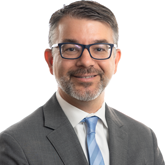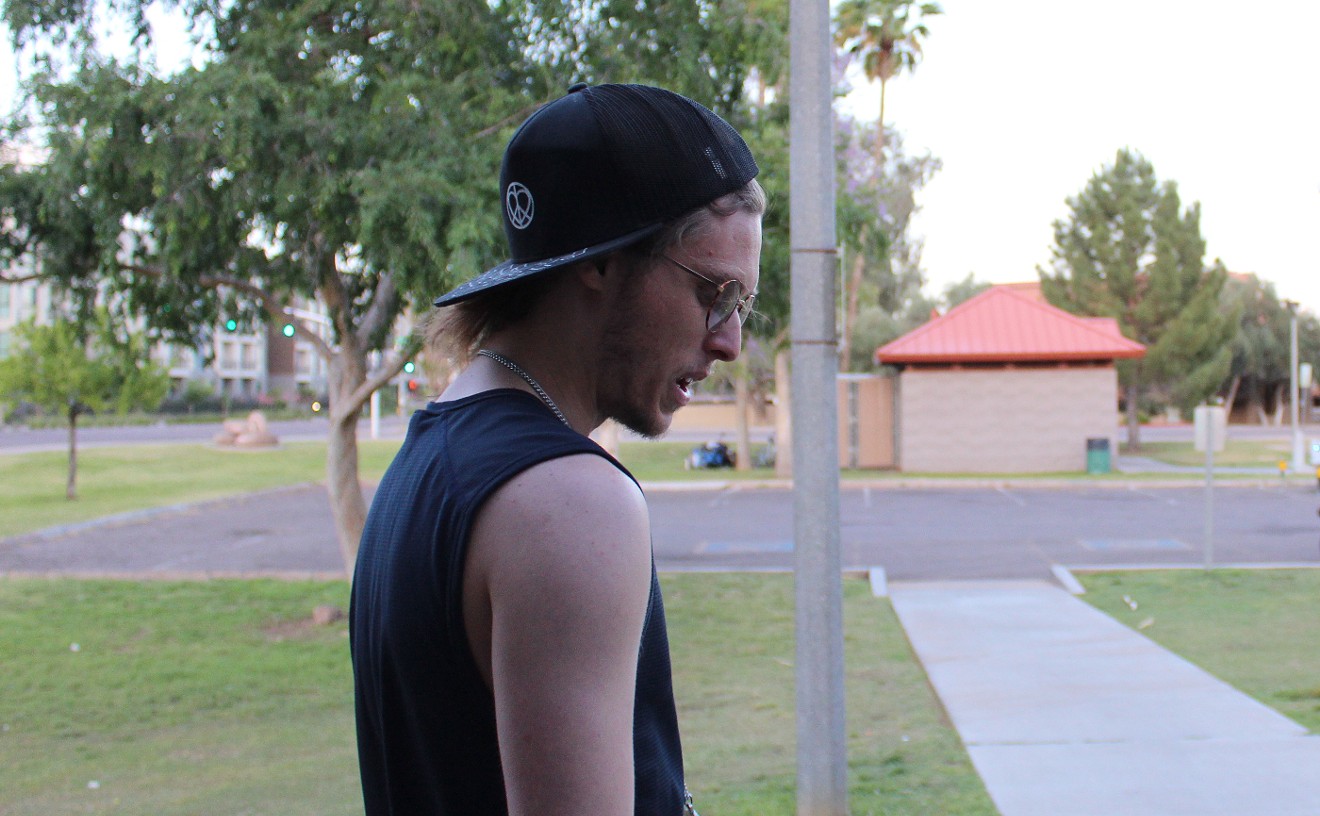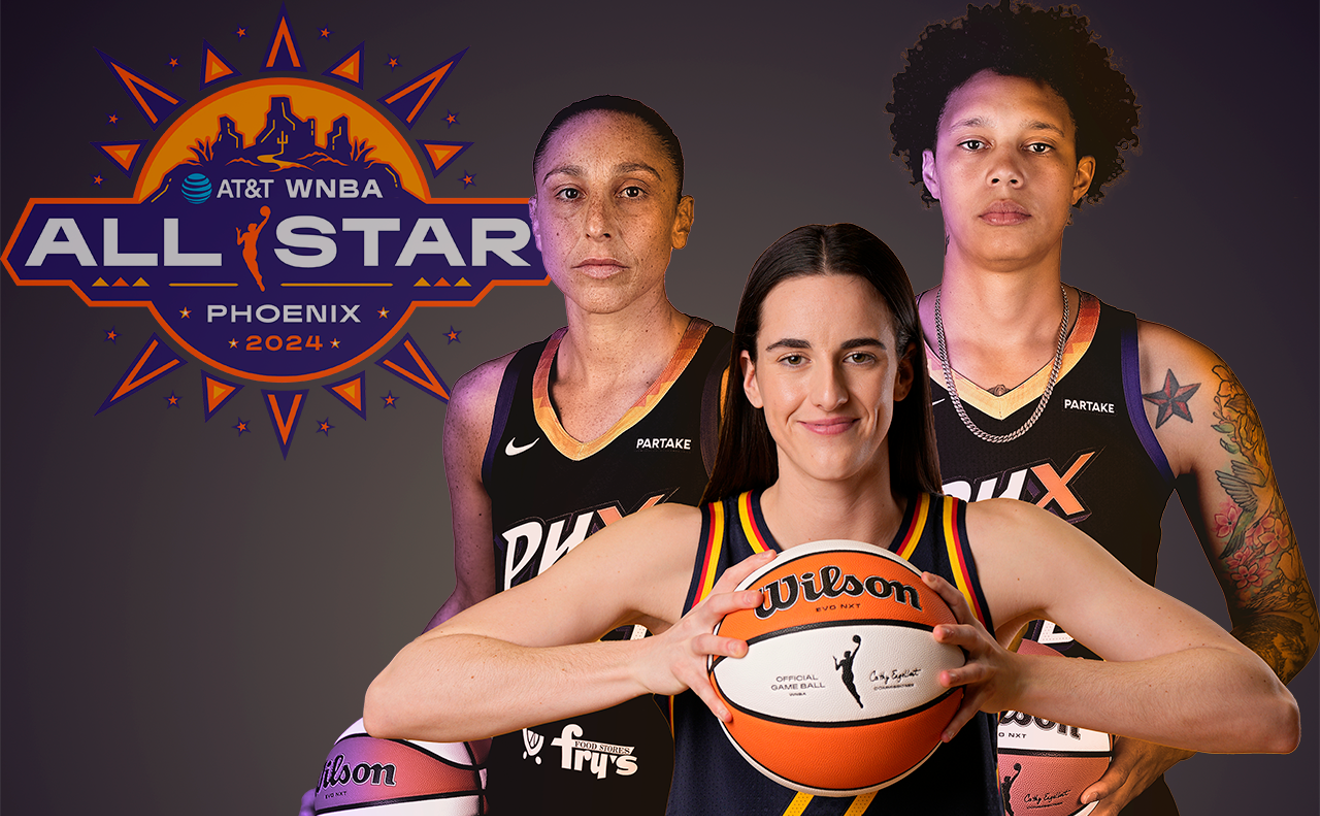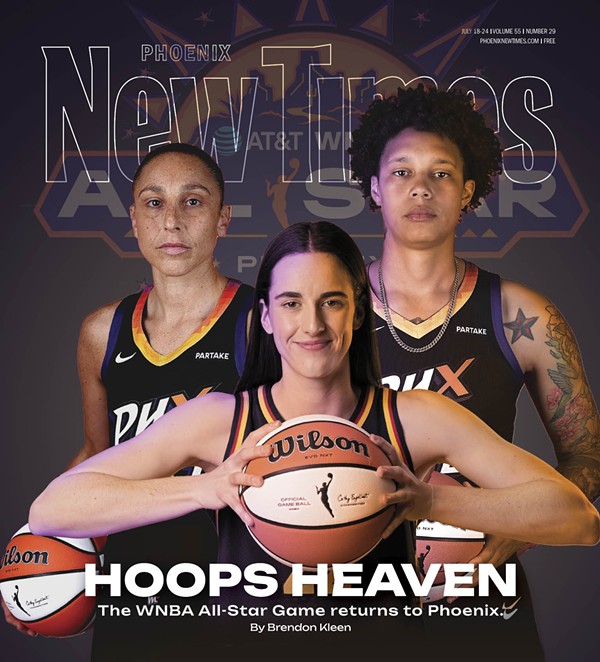(Update: ASU's new vaccination rules for students draws Governor Ducey's anger.)
Arizona State University has chosen to return to nearly pre-pandemic levels of in-person classes for the fall 2021 semester, while the county's community colleges plan to stay mostly online.
"We're doing our best to create a schedule that we believe will meet our students' needs, based on the feedback we're hearing from students," said Eric Leshinskie, interim provost of the Maricopa County Community College District, adding that faculty members are as "excited" as students to return to campus at some point. "There is excitement across all levels, as there is hesitation across all levels."
The district, which oversees 10 colleges, went to fully online classes when the pandemic began in spring 2020 after Governor Doug Ducey ordered schools to close. It offered only limited in-person classes this spring, and plans to keep them limited for the coming fall semester.
Overall, 56 percent of classes across the 10 colleges will be offered in an online format, with 36 percent "in-person and hybrid," according to the district. Another eight percent are in other formats "like field-based study or independent study."
The in-person hybrid category includes classes with an in-person component, such as a weekly class meeting, while part of the class is virtual. Fully in-person classes will comprise only 19 percent of the district's classes.
The distribution of in-person-to-online classes varies widely across the colleges: Chandler Gilbert Community College, for instance, will have 62.4 percent of its classes as "in-person and hybrid," while Mesa Community College will have only 38.2 percent in that category. Conversely, CGCC will have 34.7 percent of classes online, a category that includes "online, live online, [and] hybrid virtual," while MCC will have 53.6 percent of classes online.
(See below for the chart with all of the colleges' Fall 2021 modalities and their percentages.)
Online classes can be virtual and synchronous, which means the instructor and students are present together in real time, or asynchronous, which can be taken anytime by a student.
"That seems [like] overkill," said Will Humble, executive director for the Arizona Public Health Association, of the district's online-heavy plan. "My bet is that they're using the pandemic to justify a business model change that they like. (ie it's cheaper)."
Phoenix New Times asked ASU last week about its Fall 2021 class modalities, and a spokesperson responded on Thursday that "the number of in-person and iCourses (asynchronous, virtual) offerings on the Fall 2021 schedule is approximately the same as the number in each of those modalities in Fall 2019."
ASU offered 89 percent of its classes in-person for Fall 2019, and is offering 84 percent in-person for Fall 2021.
Both ASU and the community colleges had online offerings before the pandemic; Rio Salado Community College, of the 10, has always been primarily online.
On Friday, ASU sent a letter to its employees and students that it would resume "pre-pandemic operations" starting July 15.
"We are looking forward to providing our students with a full campus experience that will include in-person classes and in-person learning opportunities, extracurricular activities, and support," said the letter signed by executive vice presidents Mark Searle and Morgan Olsen, as first reported by the State Press, ASU's student-run newspaper.
ASU's online experience during the pandemic was horrendous for some students, the State Press reported in December in an in-depth article headlined, "'Most of us are really, really suffering': Students, faculty say semester was unsuccessful."
No firm decision has been made yet on district level for community college sports, but at Mesa Community College, the district's largest college, sports are expected to begin as normal this coming fall, said MCC Thunderbirds spokesperson Wayne Block.
MCC's spring sports program took off slowly, impacted not just by pandemic but also by injured athletes, he said. He thinks next year should go well and expects the athletic department to spend the summer continuing its recruiting efforts. Told that the district expects most classes to be online in the fall, Block said that "on a personal level, I hate to see that."
Leshinskie emphasized the colleges' "award-winning faculty" and said students receive an "outstanding" quality of education, whether the classes are in-person, virtual, or some mix of the two. Asked if he thought virtual or online classes were as good as in-person classes, the provost would not say. He touted a new law that allows the colleges to offer some four-year degrees, which are flexible to the needs of students, some of whom may have strengths in "different modalities." The colleges have long offered virtual or online classes, and "we may not ever be" at the pre-pandemic level of in-person classes again, he said.
Yet Leshinskie does see the district boosting its "in-person learning opportunities" for the spring 2022 semester, he said, because the state is likely to be further along in its fight against COVID-19 by then.
"Our primary motivation is to meet our students' needs," he repeated.
Following the interview with Leshinskie, the community college district released the results of a student survey taken just before the spring 2021 semester ended. It states that 33 percent of students prefer in-person classes for the fall semester, 44 percent prefer online (with only a quarter of those preferring live virtual classes), and 23 percent prefer hybrid classes with both in-person and online components.
Dasi Danzig, an MCCCD spokesperson, cautioned that "it really isn't appropriate" to compare (as seems logical to do) the 33 percent student preference of in-person classes to the district's offering of 19 percent in-person classes, because "there isn't a one-to-one connection between what students reported to us and what we are offering in terms of modality."
Currently, students are registered for in-person classes at lower rates than for online classes, leaving the in-person classes only 29 percent full compared to the 67 percent-full online classes.
"While we are offering fewer in-person classes than online, if in-person classes were the higher demand, they would be filling at rates similar to or higher than online," she said.
The survey report also mentions that "unsuccessful completion" of classes (involving grades of D, F or Z), increased by 0.4 percent in spring 2020 compared to spring 2019.
"While that may not seem like a big shift, it does represent over 21,000 grades," the report notes.
Meanwhile, another survey released by MCCCD showed ambivalence about returning to campus by 2,827 respondents, about a quarter of whom were resident or adjunct faculty, the rest being staff members. The survey says that while 68 percent of respondents "were neutral, comfortable, or extremely comfortable returning to the workplace," it also shows that 87.9 percent of respondents would likely keep working remotely, if that were given as an option.
Total enrollment for the spring semester was down by as much as 17 percent, and the trend of shrinking enrollment is continuing for the fall 2021 semester. Public K-12 schools, which are making decisions locally about the level of return to in-person classes, have also seen declining enrollment following the pandemic.
[
{
"name": "Air - MediumRectangle - Inline Content - Mobile Display Size",
"component": "18478561",
"insertPoint": "2",
"requiredCountToDisplay": "2",
"watchElement": ".fdn-content-body",
"astAdList": [
{
"adType": "rectangle",
"displayTargets": "mobile"
}
]
},{
"name": "Editor Picks",
"component": "16759093",
"insertPoint": "4",
"requiredCountToDisplay": "1",
"watchElement": ".fdn-content-body",
"astAdList": [
{
"adType": "rectangle",
"displayTargets": "desktop|tablet"
},{
"adType": "rectangle",
"displayTargets": "desktop|tablet|mobile"
}
]
},{
"name": "Inline Links",
"component": "17980324",
"insertPoint": "8th",
"startingPoint": 8,
"requiredCountToDisplay": "7",
"maxInsertions": 25
},{
"name": "Air - MediumRectangle - Combo - Inline Content",
"component": "16759092",
"insertPoint": "8th",
"startingPoint": 8,
"requiredCountToDisplay": "7",
"maxInsertions": 25,
"watchElement": ".fdn-content-body",
"astAdList": [
{
"adType": "rectangle",
"displayTargets": "desktop|tablet"
},{
"adType": "rectangle",
"displayTargets": "desktop|tablet|mobile"
}
]
},{
"name": "Inline Links",
"component": "17980324",
"insertPoint": "8th",
"startingPoint": 12,
"requiredCountToDisplay": "11",
"maxInsertions": 24
},{
"name": "Air - Leaderboard Tower - Combo - Inline Content",
"component": "16759094",
"insertPoint": "8th",
"startingPoint": 12,
"requiredCountToDisplay": "11",
"maxInsertions": 24,
"watchElement": ".fdn-content-body",
"astAdList": [
{
"adType": "leaderboardInlineContent",
"displayTargets": "desktop|tablet"
},{
"adType": "tower",
"displayTargets": "mobile"
}
]
}
]














